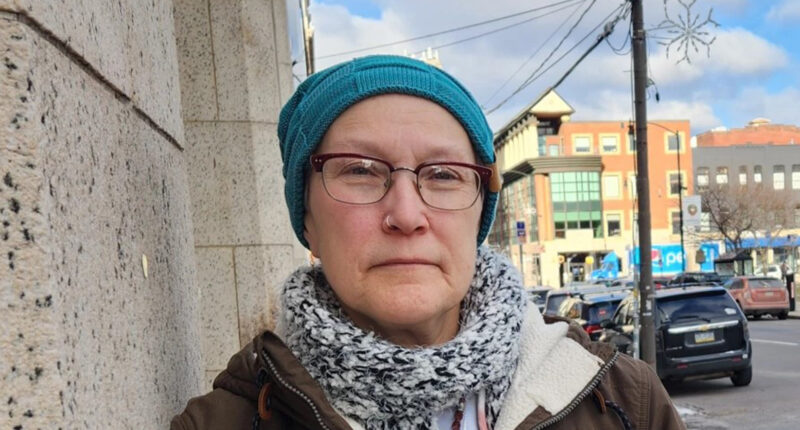A WOMAN has lost her $50,000 life savings to a sick plot that left her feeling hopeless and on the verge of suicide.
Vanessa White Fernandes, 62, is sounding the alarm about a phone call she got in August that altered her life forever.


The caller claimed to be with the Lackawanna County Sheriff’s Office in Scranton, Pennsylvania.
Fernandes was informed that she missed a court hearing and was at risk of facing jail time unless she paid a fine promptly, as reported by NPR and PBS local affiliate WVIA.
Over the next three weeks, she was tricked into withdrawing over $50,000 from her retirement funds and savings and sending it to the scammer.
The court hearing Fernandes was told she missed was supposedly related to a juvenile sexual abuse case.
Speculating on the reason for the case, she pondered if it was related to her past or perhaps to someone she had assisted during her three decades of work in the mental health sector.
The scammer convinced her she had signed a subpoena to appear at a hearing.
They insisted if she went to the sheriff’s office without paying the fine, she would be arrested.
Fernandes demanded to see the subpoena to check the signature on it, but the scammer told her she had to pay the fine first.
So she paid the fee, a whopping $1,200, through a Coinstar machine.
She told WVIA that the scammers had her on the phone as she transferred the money.
“They had me on an open line while I was at the machine, giving me codes to enter for the machine to operate,” she said.
Upon making the initial payment, she was startled to learn that due to call dropouts on her cell phone during communication with them, additional penalties had been imposed by the federal judge.
Over the next three weeks, Fernandes continued sending money.
She kept it a secret from her wife, Brenda, because the scammer warned her not to tell anyone, claiming it would violate a “gag order.”
She said the caller was convincing and gave her their name and batch number.
She looked up the name and batch number and matched it to information on the Lackawanna County website.
Bank tips for avoiding scams

As scams become more sophisticated with the use of artificial intelligence, it is important you know how to spot a scam:
- Be skeptical of online deals that seem too good to be true, especially on social media.
- Scammers will often use tactics to make you panicked so you make quick decisions – be cautious if you are told to take immediate action and verify who has contacted you.
- Chase Bank warns customers to “never return any unexpected funds without calling Chase first.”
- Never send money to someone you have only spoken to online or by phone as this is likely a romance scam.
- Unless you 100% know who you are talking to, never give someone remote access to your device.
- Never accept help from strangers at an ATM and always be vigilant when making withdrawals.
- Do not send money or click any links indicating that you have won a prize.
Source: Chase.com
And she said even the number she was getting a call from looked authentic.
Though she was kept in the dark, Fernandes’ wife knew something was wrong.
She grew even more suspicious when an alarm on Fernandes’ phone started going off every hour.
Scammers had told Fernandes to check in hourly and if she didn’t, she’d be hit with yet another fine.
Her bank accounts were drained and she had to take an advance on her credit card. She even borrowed money from others.
TRUTH FINALLY COMES OUT
Fed up and desperate, Fernandes, accompanied by her wife, went to the Scranton Police Department for help.
That’s when the whole plot unraveled – and a detective told Fernandes there’s no way the money can be traced back.
Her wife added, “She got to the point of such darkness she wanted to end it. She did not want to live anymore.
“I have never seen that with her before. That was scary.”
Fernandes likely fell victim to spoofing, according to WVIA, or when a caller deliberately falsifies information on caller ID.
This makes it look like the call is coming from an official source, like a sheriff’s office.
Anyone who falls victim to spoofing is urged to file a complaint with the Federal Communications Commission.
As for Fernandes, she said she hopes by sharing her story, others can learn from her mistake and avoid falling victim to similar scams.
“I want to tell the story because it can happen to anyone,” she said.
“I mean, I’m a pretty open, trusting person. That may have made me more vulnerable.”
If you or someone you know is affected by any of the issues raised in this story, call or text the 988 Suicide & Crisis Lifeline at 988, chat on 988lifeline.org, or text Crisis Text Line at 741741.

















